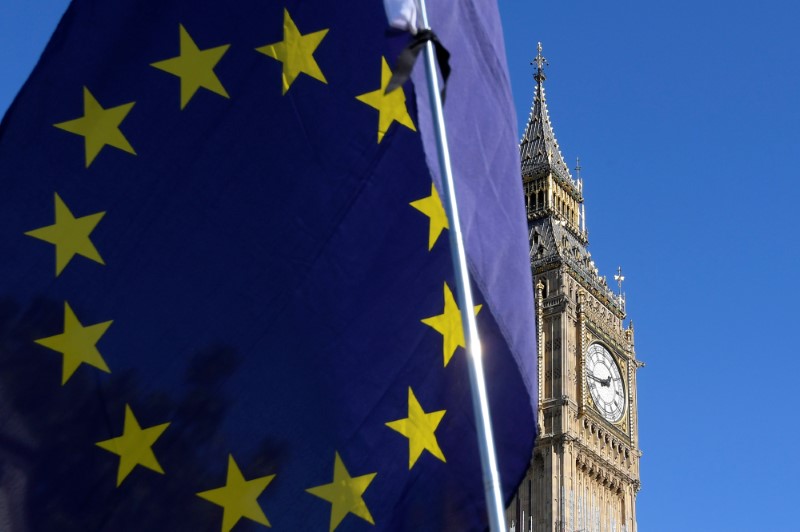(Bloomberg Opinion) -- Theresa May hasn't just given her own party an ultimatum to back her Brexit deal with Brussels. The U.K. Prime Minister has also handed Labour an equally difficult choice: The outcome will decide whether she gets her way.
So far, Labour's divides over the European question have been largely obscured by the Conservatives' own feuds. For vocal Brexiters like Boris Johnson and Jacob Rees-Mogg, anything short of a total break from all EU rules and institutions is a betrayal of the Brexit referendum. There are already rumblings Conservative lawmakers may trigger a vote of no confidence in her leadership.
These divisions have also helped to deflect attention from the fact that Labour hasn't had to come up with a plan of its own; instead it has merely created six (impossible) tests by which it will pass judgment on whatever May proposes.
As lawmakers prepare to vote on May’s plan, the opposition is faced with a choice it can only hate: Either it supports a government it wants to replace, or votes against a deal that offers the country its best chance of an orderly Brexit.
Which way Labour lawmakers vote matters all the more now because May, who only has a slender parliamentary majority, is coming under fire from a second front within her own party: Remainers such as transport minister Jo Johnson, who resigned last week urging his party to reject May's deal and hold a second referendum on Brexit. The parliamentary arithmetic is tight.
If Labour decides, as it almost certainly will, to oppose the deal, the prime minister will have to rely on a handful of Labour MPs who believe that an agreement is preferable to not having one and are willing to defy their leadership if told to vote against the government. A few Labour MPs have helped the government win Brexit-related votes in the past, but this would be a much more consequential vote.
You would think that Labour, the pro-European party in British politics for the past three decades, would support an agreement or oppose Brexit. Awkwardly, though, while most Labour voters were Remainers in the 2016 referendum, more party MPs actually represent Leave-voting constituencies. But the bigger obstacle is that party leader Jeremy Corbyn himself has been a longtime critic of the EU.
For Corbyn, Brexit has been more of a distraction than a cause to rally behind. His priority is a radical reordering of the U.K. economy: the nationalization of key industries, an expansion of welfare, and an overhaul of the tax system. The EU’s insistence that Britain remain bound by its state-aid and competition rules would hinder many of Corbyn’s plans. His clear preference is for a general election, though he reluctantly agreed at his party's annual conference to support a second referendum – if a vote could not be held.
Keir Starmer, Labour's shadow Brexit minister, has at times appeared uncomfortable with his party's line. In 2017, he often repeated that it's impossible to imagine an agreement that would be worse than no deal at all. The disruption, uncertainty and widespread economic loss that leaving without a negotiated agreement would cause was, he said, the worst possible outcome. He was right then, though the party’s position has only grown muddier ever since.
The risk is that in opposing May's deal, Labour will push Britain into the no-deal scenario that Starmer has warned against and that his party could have prevented.
